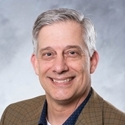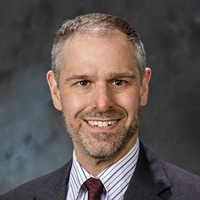Teaching History
Graduate Certificate
Stand Out in your calling.
MARCH 10
NEXT START
With several start dates throughout the year.
18
CREDIT PROGRAM
Complete the program in just 3 semesters.
ONLINE
COURSEWORK
Complete your coursework 100% online and asynchronous.
$360
COST PER CREDIT
One of Iowa’s most affordable programs.
Why Northwestern?
Why Northwestern?
Why Northwestern?
Designed for educators seeking to teach college-level history courses, this fully online graduate certificate prepares you for dual/concurrent enrollment, Postsecondary Enrollment Options (PSEO), and community college teaching opportunities. Through advanced coursework, you’ll deepen your content knowledge while refining effective strategies for teaching history to both K–12 and college students.
This 18-credit Graduate Certificate in Teaching History includes graduate-level coursework in history and government and meets most regional accreditor and department of education requirements for teaching college-credit history courses. With Northwestern, you’ll be equiped to make history more engaging, relevant, and meaningful for today’s learners—building on your existing experience to strengthen your impact in the classroom.
It’s more than a lane change.
Earning a certificate doesn’t have to cost you time away from your other responsibilities. Log into class each week and complete your coursework, whenever it’s most convenient for you. By taking 1 online 8-week class at a time, you’ll finish your certificate in just 3 semesters!
Application requirements
Application requirements
Application requirements
No GRE required. No application fee.
Application materials reviewed on a rolling basis. They will be evaluated as they are received.
No GRE required. No application fee.
Application materials reviewed on a rolling basis. They will be evaluated as they are received.
No GRE required. No application fee.
Application materials reviewed on a rolling basis. They will be evaluated as they are received.
Baccalaureate degree
Official transcripts showing a degree from an accredited institution.
- Official transcripts are needed from your bachelor’s degree institution.
- No undergraduate transcripts are required of NWC alumni.
Send official transcripts to [email protected] or
Northwestern College Graduate & Professional Studies
101 7th St SW
Orange City, IA 51041
Degrees from colleges accredited by the Association for Biblical Higher Education [ABHE] or affiliated with the Transnational Association of Christian Colleges & Universities [TRACS] will be considered on a case-by-case basis.
GPA requirements
Minimum undergraduate cumulative GPA of 3.0 on a 4.0 scale.
Applicants with a GPA under 3.0 may be eligible for conditional admission on a case-by-case basis.
Teaching license
Documentation of valid teaching license.
A digital or scanned copy from your state’s Department of Education website is sufficient.
Students applying for the Graduate Certificate in Teaching History must hold an endorsement in history or social studies for acceptance or receive prior approval from the M.Ed. department chair for admission.
Program specifics
Program specifics
Program specifics
18 credit program
18 credit program
18 credit program
HIS500 - Play, Games and Athletics: The History of Sport in America
This course explores perceptions of sport and how sport has changed, with a
focus on race, gender, class and ethnicity. We will examine the history of
sport in the United States from the colonial period to the present. We will
consider how sports reflected and often shaped ideas about race, gender,
ethnicity, class, amateurism, professionalization, international politics
and governmental policies and laws. The class will focus on the ways that
Christians perceived and embraced certain forms of sport and the ways that
Christians influenced sport and were influenced by sport. In addition, the
course traces the development of sports, investigate the ways in which
spontaneous games played by Americans in the eighteenth and nineteenth
centuries evolved into highly formalized and popular activities that now
comprise a multi-billion dollar industry. Prerequisite: completed bachelor's
degree in education. (3 credits)
HIS510 - Magic, Science and Religion in the Middle Ages
[The Wolfsthurn Handbook] ?recommends taking the leaves of a particular
plant as a remedy for "fever of all sorts"; this in itself would count as
science, or as folk medicine, rather than magic. Before using these leaves,
one is supposed to write certain Latin words on them to invoke the power of
the Holy Trinity...; this in itself would count as religion. There is no
scientific or religious reason, however, for repeating this procedure before
sunrise on three consecutive mornings. By adding this requirement, the
[medieval] author enhances the power of science and religion with that of
magic."
This course explores two interconnected historical problems: (1) the nature
of magic as a theoretical and practical world view that was dominant in the
pre-modern Mediterranean world and Europe, and (2) the origin and
development of science from ancient and medieval natural philosophy. Both
the history of magic and the history of science must be understood in
tandem. A historical treatment of the origin of modern science at the end of
the Middle Ages that does not discuss medieval magic would be incomplete;
similarly, it would be impossible to discuss medieval magic without also
discussing medieval natural philosophy (i.e. what we would call today
science).
Further, both of these phenomena are inseparable from religion, and
consequently the course also attends carefully to how the Christian church
responded to both magic and science. Prerequisite: completed bachelor's
degree in education. (3 credits)
HIS520 - By the Bomb's Early Light: The Atomic Bomb and Nuclear Culture in America
Despite some recent progress toward disarmament, we still exist in a world
in which two nations, each possessing thousands of nuclear warheads, have
the capacity to destroy all of the planet's major cities, not to mention
much of the territory in between, many times over. At least seven other
nations have control of sufficient nuclear explosives to utterly destroy
their immediate neighbors.1 This course explores how this situation came
about and how perceptions of nuclear weapons and nuclear energy have
changed. The course focuses on scientific culture, American culture during
the Cold War, religious responses to the bomb, and the broader implications
of nuclear weapons and nuclear energy.
We will examine how atomic energy was first conceived and how it was
eventually harnessed. This new source of destructive power decisively
changed the socio-political role of the physicist, altered the nature of
war, and introduced global suicide as strategic policy. The focus of the
class will be to think about the network and recourses necessary to produce
a technical object like the atom bomb, as well as the socio-cultural impact
of the introduction of a new technology. Prerequisite: completed bachelor's
degree in education. (3 credits)
HIS530 - Historical Tales Without a Historian: Novels, Movies, and Comic Books
This course concentrates on the most popular forms of historical narrative
outside the classroom: novels, movies, and comic books. How do artists
recall, organize, and perhaps most
importantly, make relevant to us today, various pasts stories? For teachers
as well as students, movies, novels and comic books make big impressions.
Through carefully selected examples of each students will learn how
historical narrative works, about distinctive genres of historical narrative
(the Western, combat, dystopian stories) make a particular past seem
relevant, and how to think historically about such stories. We'll conclude
the class by considering conspiracy theories as particular and fascinating
forms of historical storytelling. Overall, we will work on thinking
carefully and well about popular culture's various takes on the past, and
finding some ways to help our students do so. Prerequisite: completed
bachelor's degree in education. (3 credits)
HIS540 - European History and Politics Since 1945
This course examines major political issues in Europe since 1945. Topics
covered include the emergence of a politically divided Europe, ideological
debates in post-war European politics, the project of European integration,
the breakup of the communist bloc and its aftermath, religion and European
politics, and current issues in Europe. Prerequisite: completed bachelor's
degree in education. (3 credits)
HIS550 - That Godless Court? The Supreme Court and Religious Issues in the United States
This course provides an introduction to some of the key Constitutional
issues swirling around the first sixteen words of the First Amendment: the
religion clause (or in the estimation of some the two religion clauses).
Consequently, to begin the semester we will spend a fair amount of time
reading about the founding fathers and their view(s) of religious liberty as
well as read some of what these framers wrote themselves about this
cherished freedom. We will also consider how this historical background and
context informs various church-state stances today as well as briefly review
the basic procedures and principles of the Supreme Court. Having set the
broad boundaries of our examination, we will then look more closely at the
key Supreme Court cases that have largely defined our current understanding
of both the Free Exercise and Establishment clauses. Prerequisite: completed
bachelor's degree in education. (3 credits)
Make it a master’s!
Master of Education in Teaching history
Seamlessly apply these 18 credits toward a master’s degree in teaching hisotry. These courses easily apply to our M.Ed. in Teaching History–requiring just 15 more credits to earn your master’s degree.
Faculty + staff
Brilliant scholars. Committed Christians. Invested in you. That’s Northwestern’s faculty.






